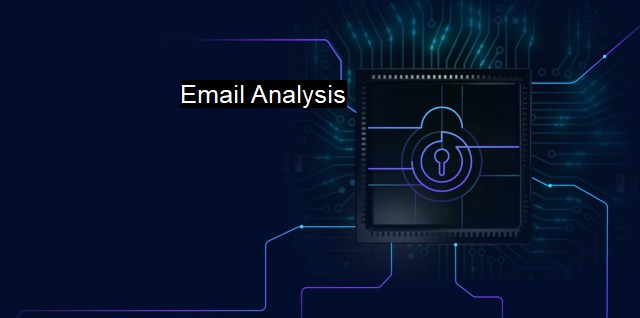What are Email Analysis?
The Vital Role of Email Analysis in Strengthening Cybersecurity for Remote and Cloud Work
Email analysis, when examined from the context of cybersecurity and antivirus, refers to the systematic examination of emails to detect any threats, spam, and malicious content that may affect the security integrity of an information system. In an increasingly digital era, email is an essential communication tool used by billions of people. With this vast usage, it's become a prime target for cyber threats. Email analysis has become imperative to protect both personal and business data.Cybersecurity plays a pivotal role in email analysis. It involves the application of security measures to protect email accounts, content, and users from hackers and cyber threats. When it comes to emails, spammers use a range of techniques like phishing, using malicious links or attachments, and can employ deceptive messaging luring users to unsafe sites. To combat these ever-growing cyber threats, email analysis for cybersecurity uses a combination of approaches.
In the cybersecurity context, email analysis focuses on examining and identifying irregularities in email properties including origin, content, headers, and server information. Advanced algorithms that deploy artificial intelligence and machine learning capabilities are often used to perform this analysis. These can identify suspicious patterns, monitor unusual activities, and even predict potential threats before they infiltrate the system, thus, providing a proactive security measure.
Email analysis engines work on both server and client sides. On the server side, they monitor incoming emails for patterns or signatures that match known spam or malware. This prevents harmful emails from reaching the inbox, safeguarding the users by limiting exposure to threats both perceived and hidden.
Client-side email analysis provides another layer of protection. Emails that slip past server-side defenses are scanned for threats once they reach the recipient's inbox. The email client software then quarantines or removes any potential threat automatically to maintain a secure email environment.
Another popular email analysis tool prevalent in cybersecurity is the antivirus email scanner. Many antivirus software packages contain email scanner components that examine emails for potential threats like links to malicious websites, virus-infected attachments, and phishing emails. Whenever an unsafe element is discovered, the user gets warned, or the email gets moved to an isolated area for further inspection. Without a dependable antivirus email scanner, a system can remain vulnerable to multiple threats that could infiltrate via emails, risking data theft, corruption, and other cybercrimes.
Context-aware email analysis has emerged as a sophisticated methodology for protecting against impersonation attacks, spamming, spear-phishing, and business email compromise (BEC). This process involves an in-depth analysis of email contents, profiling, and historical communication patterns to detect outliers and anomalies.
To sum up, email analysis is a critical component of cybersecurity strategy. It leverages a balance of complex algorithms, artificial intelligence, and security systems in place to scan, identify, isolate, and eliminate potential email threats. securing electronic mail, a mode of communication that is almost universally utilized, through comprehensive email analysis, helps protect sensitive data, maintain system integrity, and promote a risk-free digital environment. Businesses and individuals alike must be increasingly aware of their digital practices and ensure they have robust cybersecurity and antivirus protection measures in place to combat these ever-increasing and evolving email threats.

Email Analysis FAQs
What is email analysis?
Email analysis is the process of examining and evaluating email messages to extract meaningful insights that can be used to identify and mitigate cybersecurity threats. This includes analyzing email content, metadata, sender and recipient information, attachments, and other relevant data.Why is email analysis important for cybersecurity?
Email is a common attack vector used by cybercriminals to distribute malware, phishing scams, and other malicious content. Email analysis helps to identify and block these threats before they can cause any damage to an organization's network, systems, or data.What tools are used for email analysis in cybersecurity?
There are various email analysis tools available that help organizations detect and analyze email-based threats. Some popular email analysis tools include antivirus software, email gateway solutions, spam filters, and phishing simulation platforms.How can email analysis help in antivirus protection?
Email analysis plays a critical role in antivirus protection by providing insight into the nature and severity of threats that are present in email messages. Antivirus software uses email analysis to scan incoming and outgoing emails for known malware signatures and other malicious patterns, and to identify suspicious behavior that may indicate a new or emerging threat. By analyzing email messages, antivirus solutions can effectively protect against a wide range of cyber threats that target email communications.| | A | | | B | | | C | | | D | | | E | | | F | | | G | | | H | | | I | | | J | | | K | | | L | | | M | |
| | N | | | O | | | P | | | Q | | | R | | | S | | | T | | | U | | | V | | | W | | | X | | | Y | | | Z | |
| | 1 | | | 2 | | | 3 | | | 4 | | | 7 | | | 8 | | |||||||